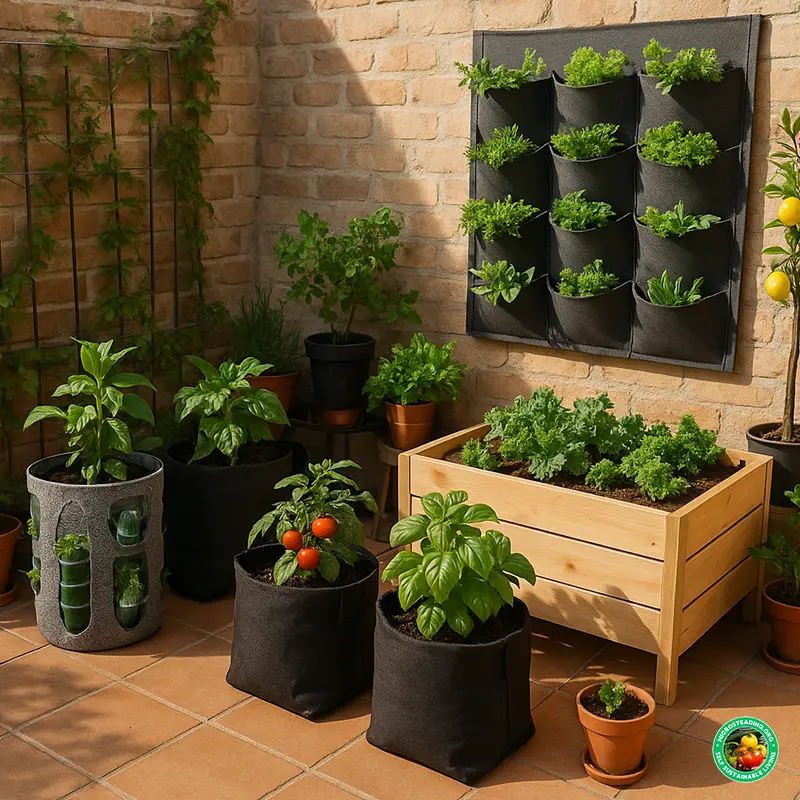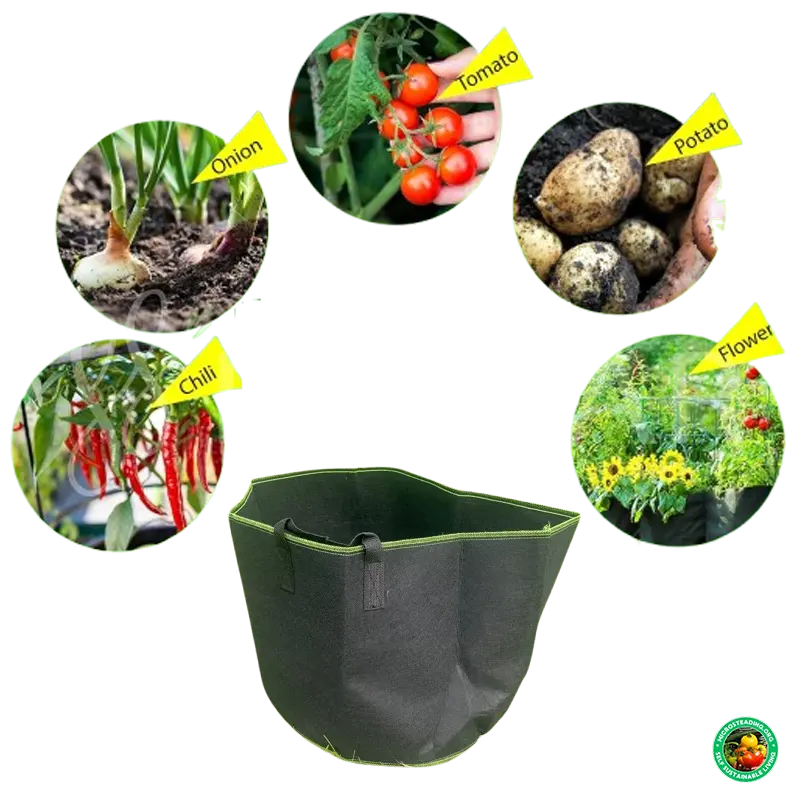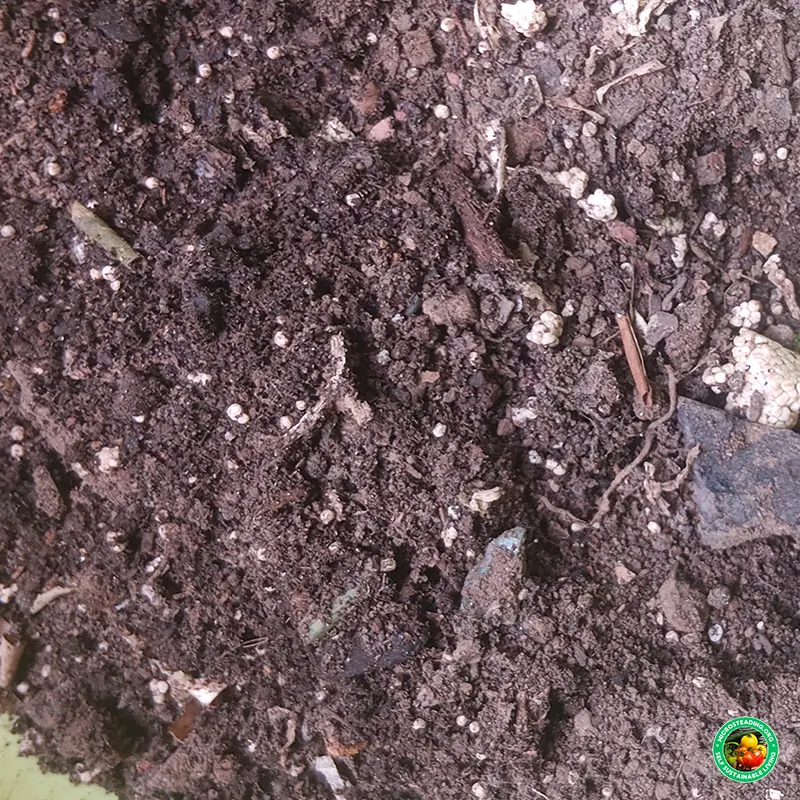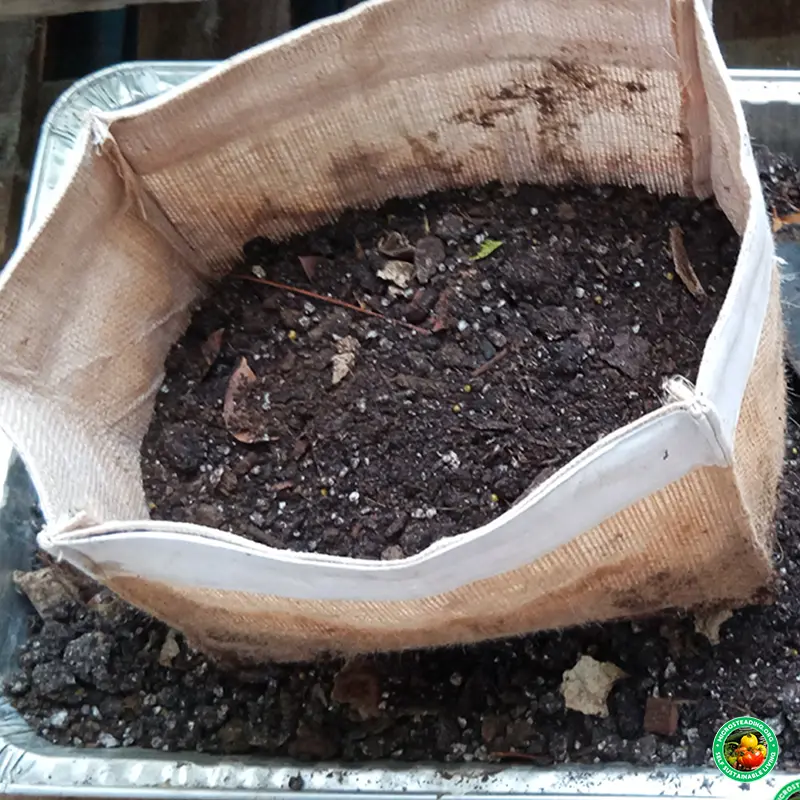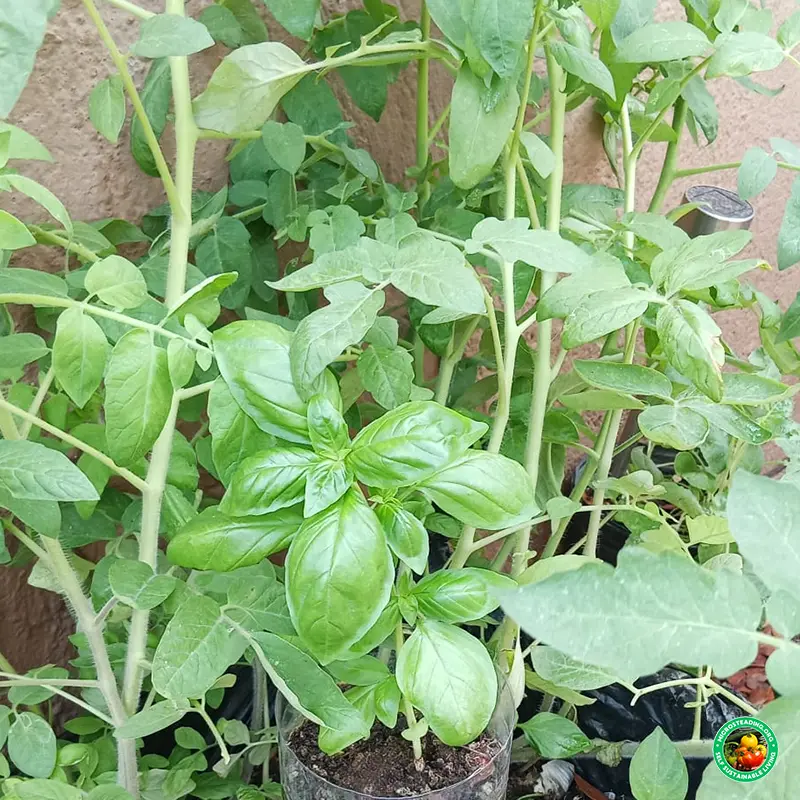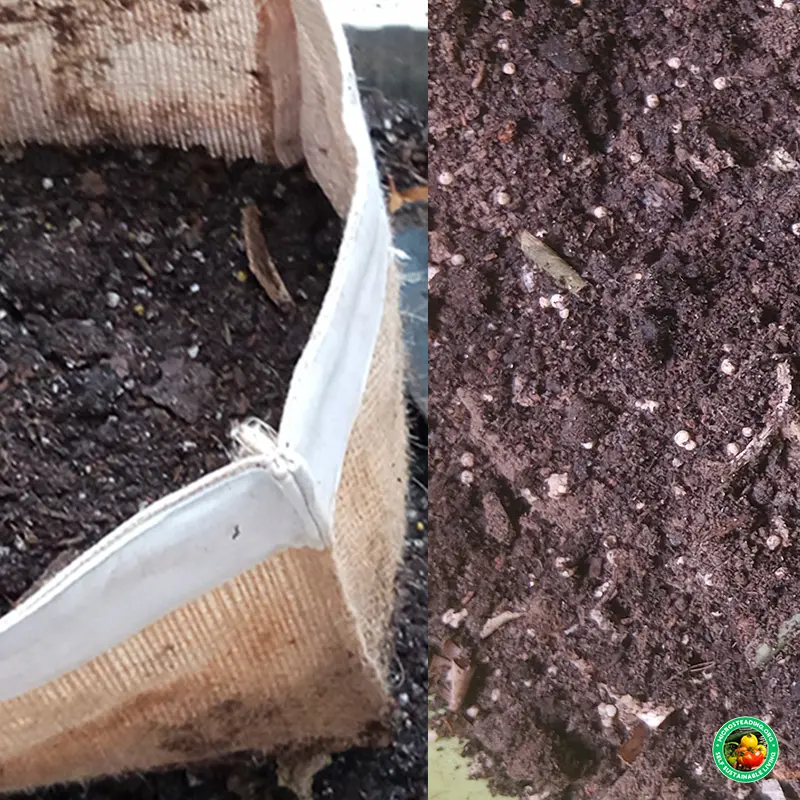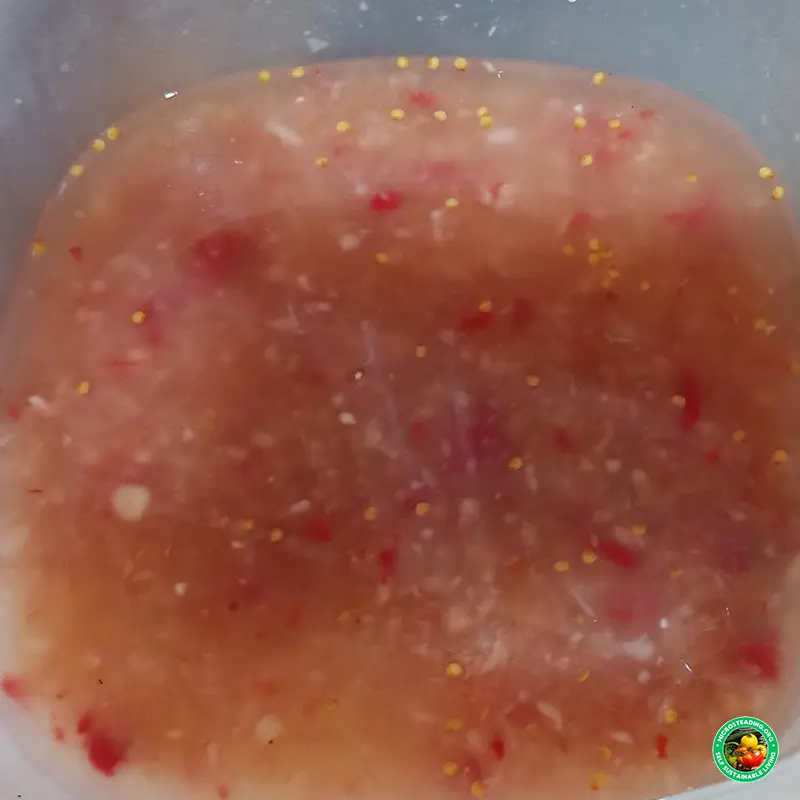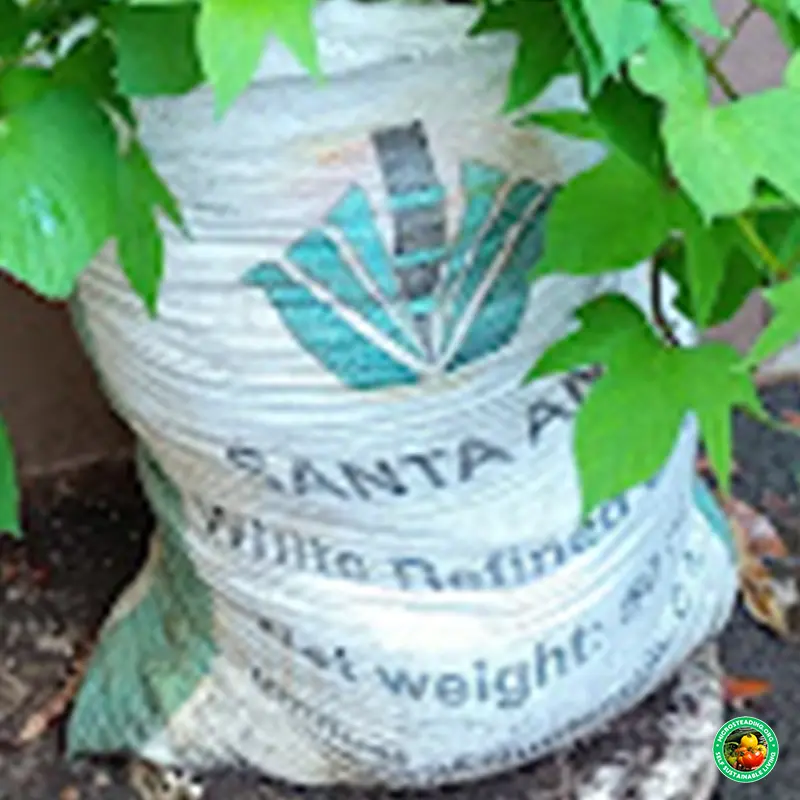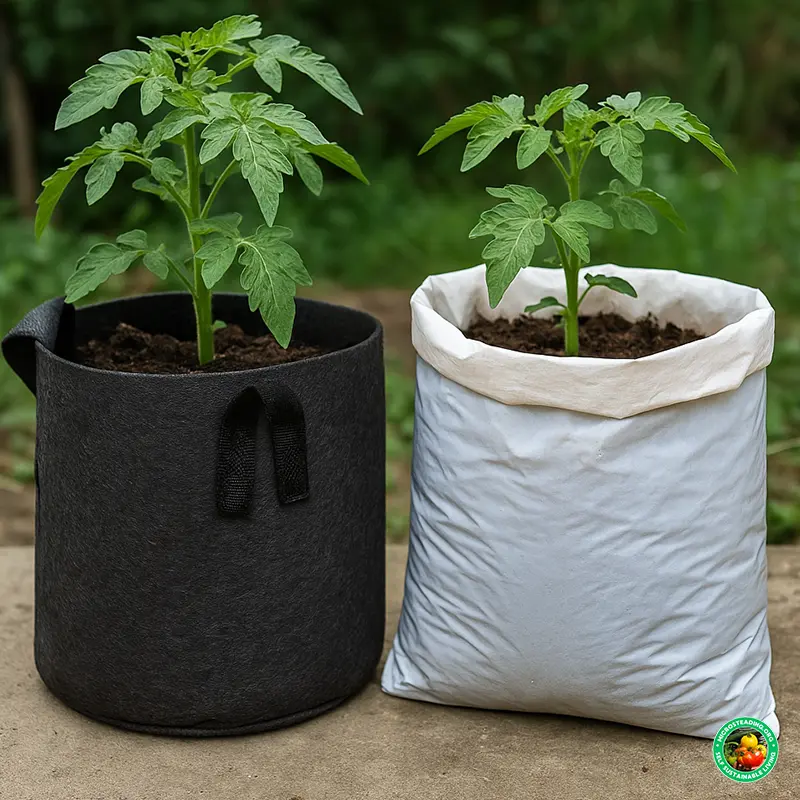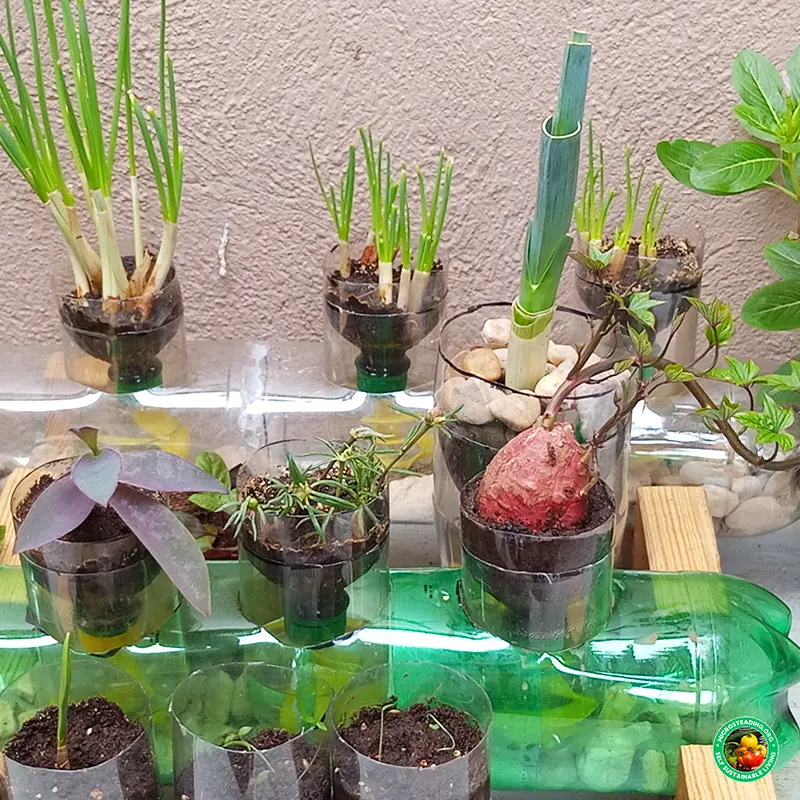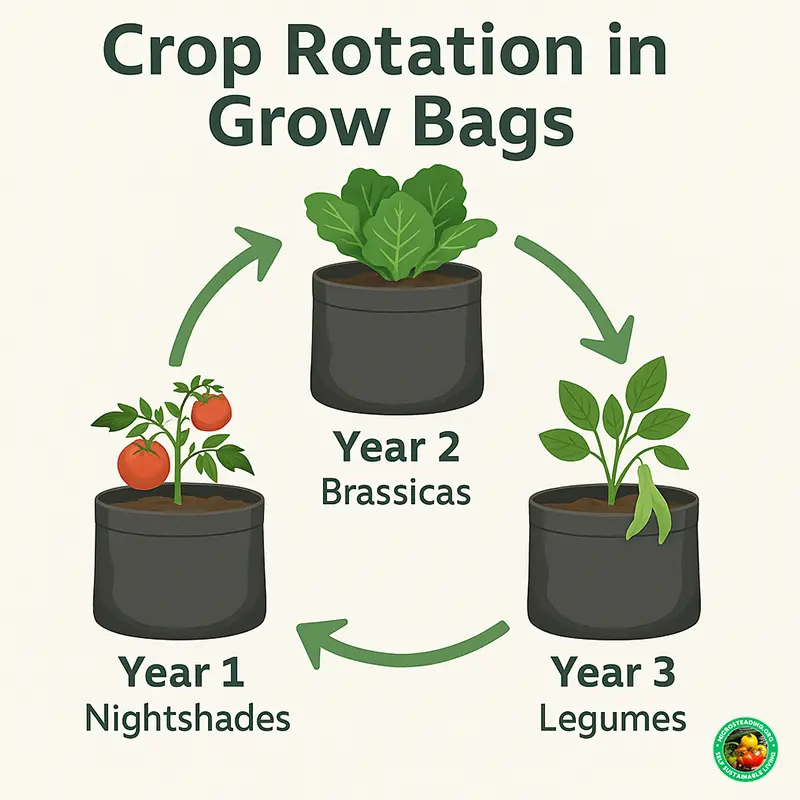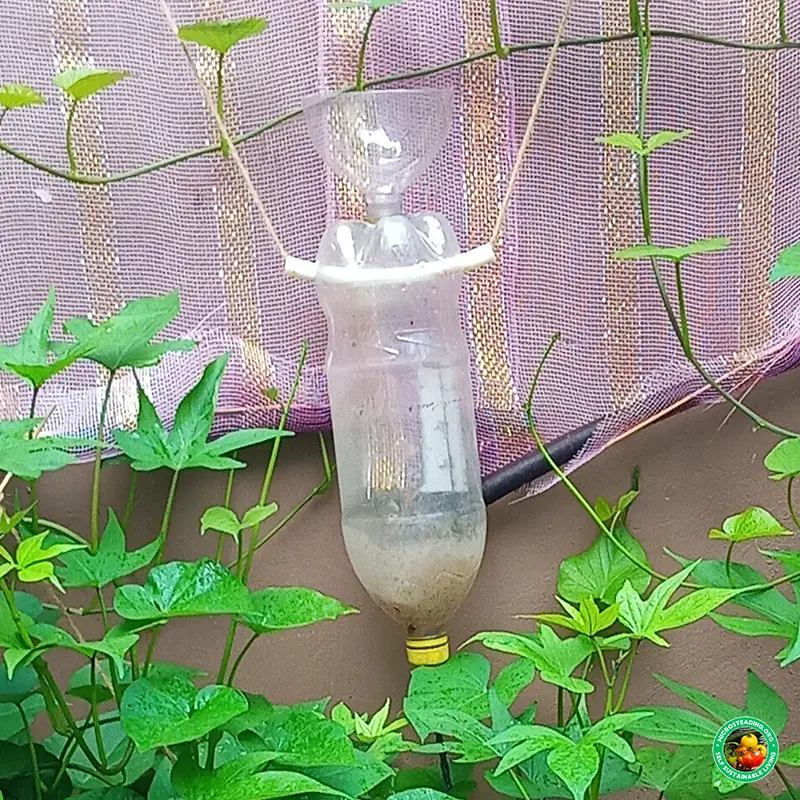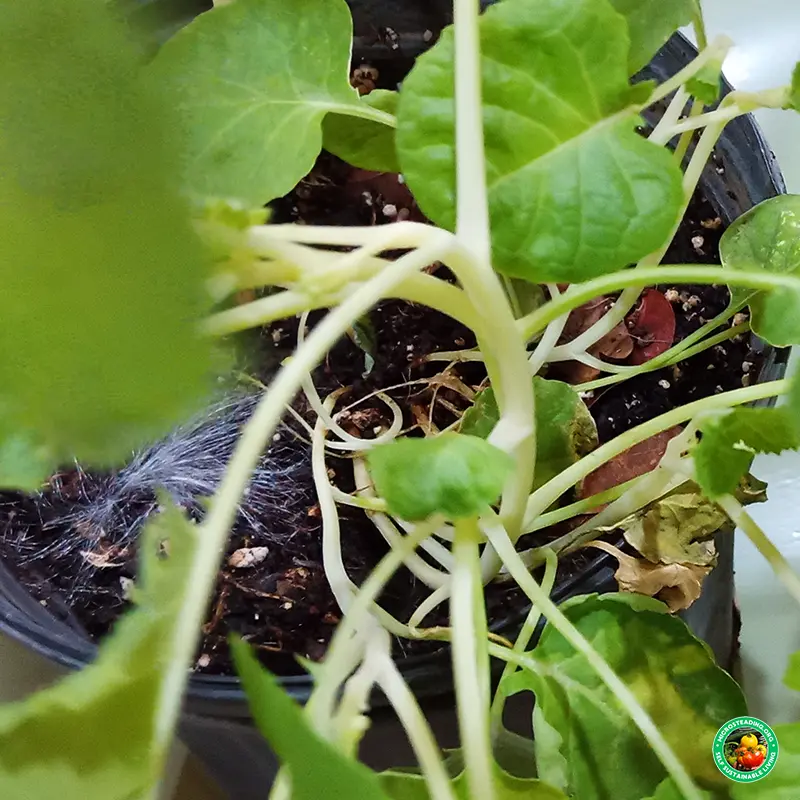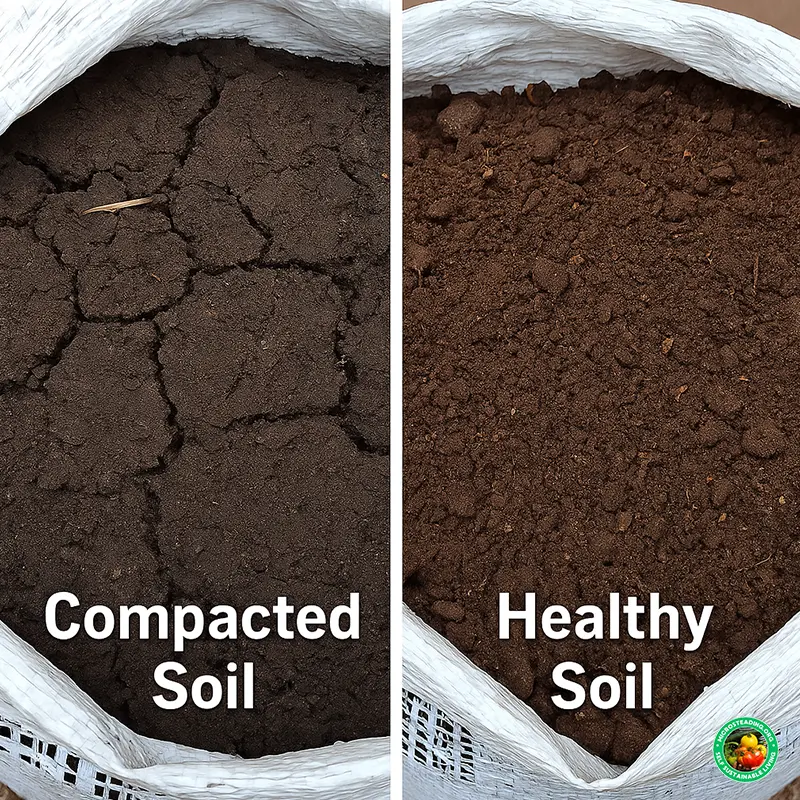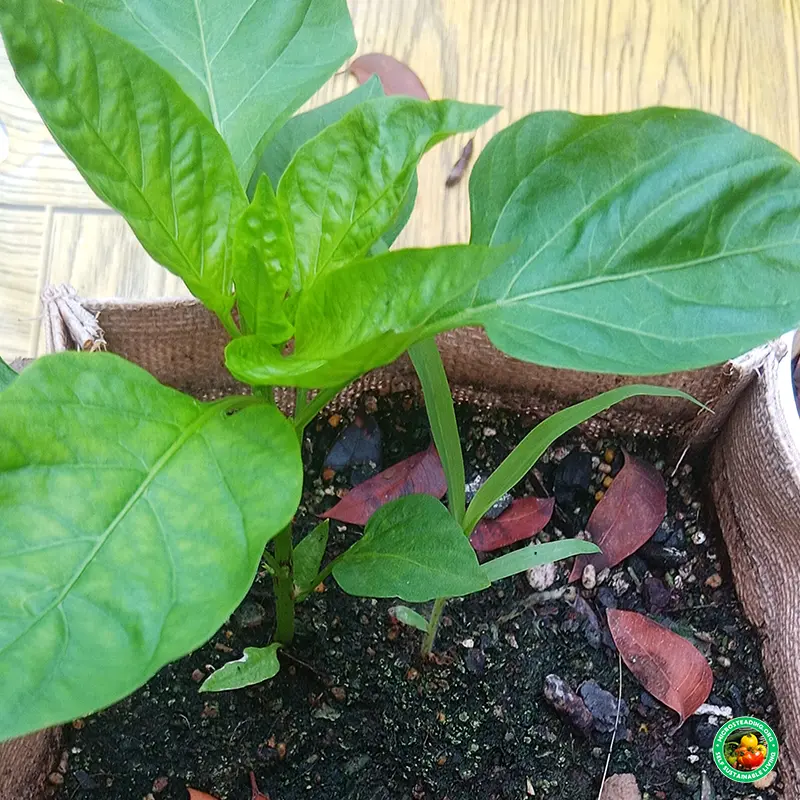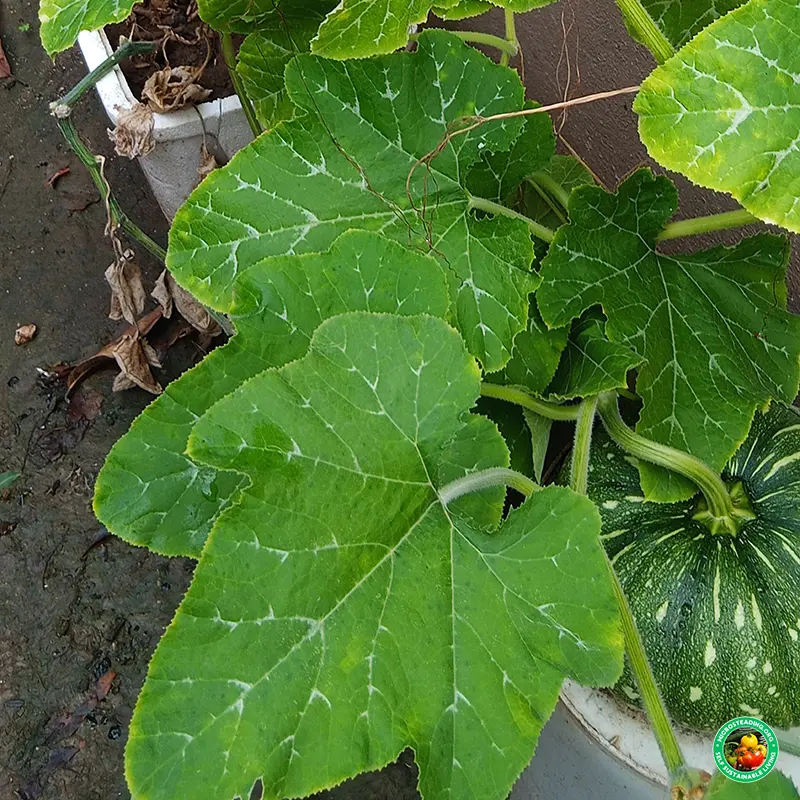Growing Sweet Potatoes in Grow Bags - A Microsteader Guide
Sweet potatoes aren’t just a warm-weather staple — they’re a grow bag champion crop. If you’ve got sunlight, a good soil mix, and a bit of patience, these resilient vines will reward you with hearty harvests, vibrant greens, and minimal fuss.
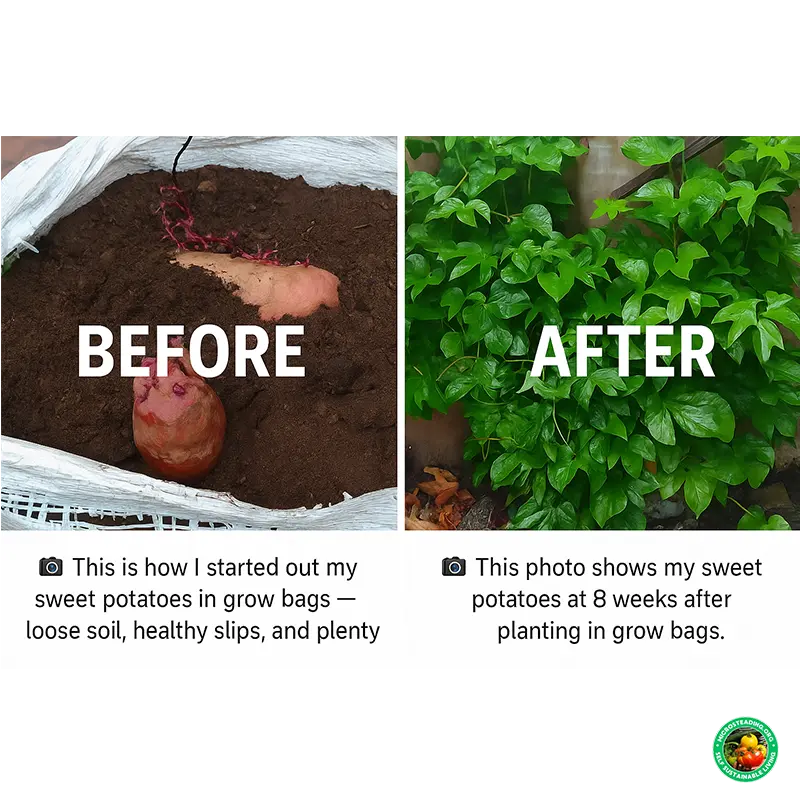
I’ve grown them right here in the heat of Curaçao (USDA Zone 13), and I’ve helped folks from Zones 9 through 11 do the same in patios, balconies, rooftops — even concrete alleyways. Grow bags make it all possible.
Here’s how to set yourself up for success.
🧺 Why Grow Sweet Potatoes in Bags?
Sweet potatoes love warmth, loose soil, and room to stretch and grow-bags offer all three:
✅ Superior drainage (no rot)
✅ Custom soil control (tailored for tuber growth)
✅ Easy mobility (chase the sun)
✅ Space-saving (vertical vines, underground bounty)
If you're new to soil setup, check out Best Soil Mixes for Grow Bags for tuber-friendly blends.
🧱 Choosing the Right Bag Size
Sweet potatoes need depth and volume to bulk up below the surface.
Minimum: 15–20 gallons (56–75 liters)
Ideal: 25+ gallons (especially if growing 2+ slips)
Material: Fabric bags or repurposed breathable sacks work best
See Choosing the Right Size Grow Bag for sizing visuals and custom crop charts.
🌱 Starting Slips the Smart Way
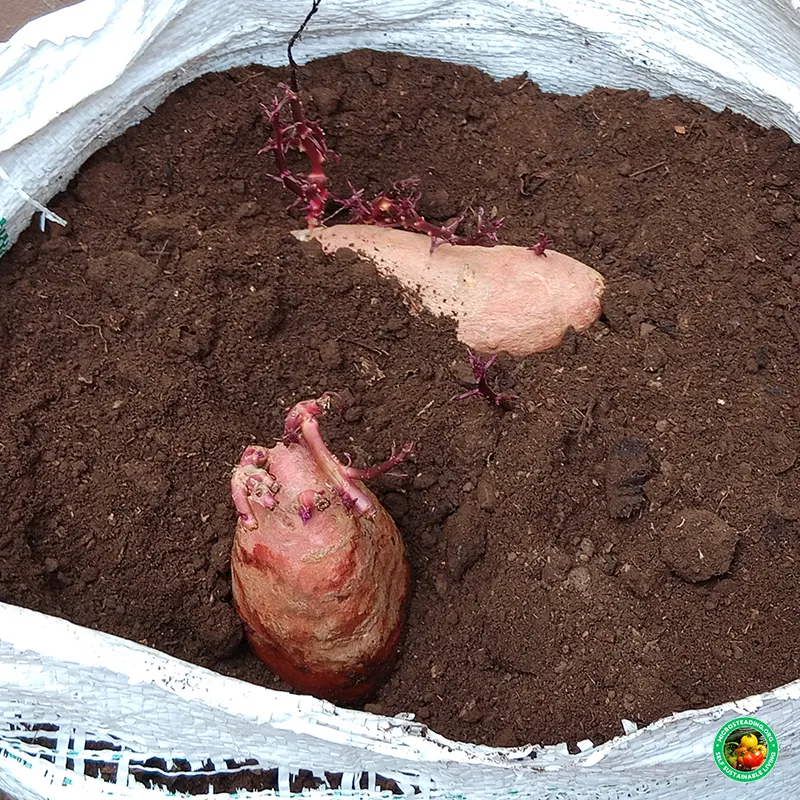
Slips are the shoots that grow from a mature sweet potato; they’re how new plants start.
You can:
• Buy certified disease-free slips online
• Or sprout your own (set a sweet potato halfway in water, pointed end down)
You're ready to plant once slips are 6–8 inches long with strong roots.
Best planting window:
Zone 13: March–August
Zones 9–11: April–July
Wait until nighttime temps are consistently above 60°F (16°C)
🧑🌾 Planting in Bags: Step-by-Step
- Fill the grow bag ⅔ full with loose, compost-rich soil
- Add 2–3 inches of coarse sand or perlite for tuber expansion
- Plant slips 4–5 inches deep, spaced 10–12 inches apart
- Water thoroughly after planting
- Top off the soil as vines grow, leaving 2–3 leaf nodes above the surface
I personally use a mix of 50% compost, 30% coco coir, 10% worm castings, 10% perlite. It’s fluffy, rich, and drains beautifully.
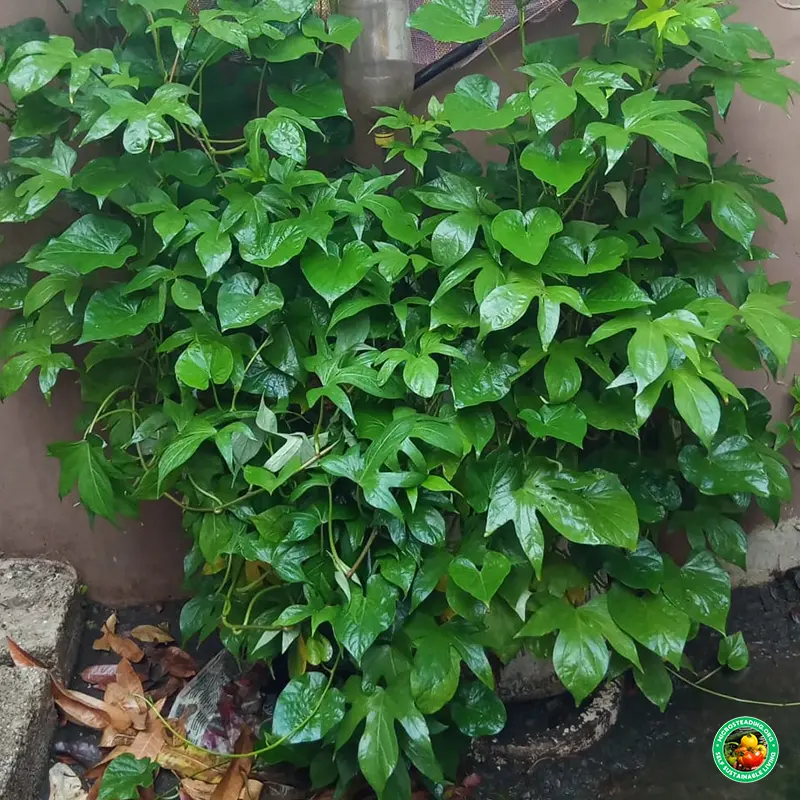
🌞 Light & Placement
Sweet potatoes need 6–8 hours of full sun daily. The more light they get, the bigger your tubers.
• Place grow bags on bricks or stands for airflow
• Avoid blacktop or metal surfaces — roots can overheat
• Rotate bags if vines lean too heavily in one direction
For more placement tips, read Grow Bag Placement for Sunlight
💧 Watering Tips
Consistent moisture is key, especially while vines establish. But avoid soggy conditions.
• Water when the top 2 inches feel dry
• Use a slow, deep watering method (soaker or drip line works great)
• Mulch the top with straw or shredded leaves to retain moisture
Optional boost: Add a diluted seaweed or fish emulsion once every 3 weeks during early growth.
See How to Water Grow Bags Efficiently for more on timing and technique.
🐛 Pest Patrol
Sweet potatoes are relatively pest-resistant, but you might encounter:
• Whiteflies or aphids (control with neem or garlic spray)
• Leaf miners (remove affected leaves quickly)
• Ants farming aphids (disturb nests, dust with cinnamon or DE)
I cover this more in Dealing with Pests in Small Grow Spaces
⏳ When & How to Harvest
Depending on your variety, harvest can happen 90–120 days after planting.
Signs it’s time:
• Vines begin to yellow and die back
• Soil line feels “looser” beneath the top layer
• You can spot the shoulders of tubers near the surface
To harvest:
- Stop watering 7–10 days before pulling
- Dump or carefully dig into your grow bag
- Avoid puncturing tubers with tools — they bruise easily
Don’t toss the leaves! Sweet potato greens are edible, nutritious, and tasty, sautéed or added to soups.
🍠 Curing & Storage
Sweet potatoes need curing to boost sweetness and shelf life.
-
Keep tubers in a warm, humid space (~85°F / 29°C and 85% RH) for 7–10 days
-
Then store in a cool, dark place (55–60°F / 13–16°C) for up to 6 months
Read more in our book’s Curing & Storage chapter, or visit our guide coming soon.
🧠 My Tips for Bag Success
✅ Grow one plant per bag for larger tubers
✅ Train vines vertically to save space
✅ If vines root along nodes, snip them — focus energy back to the bag
✅ Rotate bags every 2–3 weeks for even light
✅ Add worm castings midseason for a bonus yield
Sweet potatoes in grow bags are practically made for the microstead lifestyle. They ask little, give plenty, and prove that even a patch of patio or rooftop corner can grow real food—storage food-calorie-rich food.
If you’ve been putting it off, now’s the time to plant. One bag, one slip, one win at a time.


